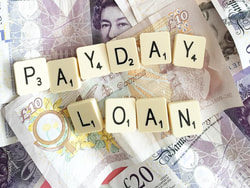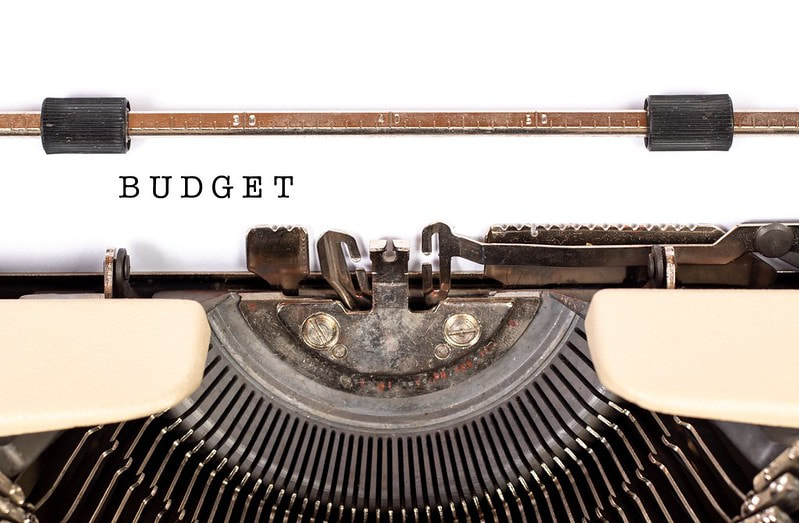|
Hi Heather,
My name’s Barry and I hate budgeting…it’s not so much the budgeting but tracking all my spending; it kind of sucks the joy out of life. I can’t stand having to think through how my money will be spent and not being able to buy what I want just because it wasn’t budgeted for – am I doomed to always be broke because I don’t budget? Do you have any suggestions for me?

Hmmmmm
Barry you raise a very interesting question. In fact, I had to think about whether I actually like budgeting myself or whether it’s just a habit I have got into over time. My answer is that I don’t think anyone loves budgeting or having to watch every single penny but when people see the benefits of operating a budget they get into. When you know your income will last until the next pay day because you’ve planned well you’re less stressed out about your finances. I have a certain friend who puts every single penny that he spends into a spreadsheet, well, it was a spreadsheet back in the day when he told me how he was managing his money, I hope he’s now found some reliable app for that purpose. When I saw his system of managing money I literally lost the will to live and that’s how I came up with what I call the “set and forget budget” or “loose budgeting” for my own money management. I love the quote "A budget is telling your money where to go, instead of wondering where it went." It was first said by John Maxwell but Dave Ramsey popularised it. Anyhow, rather than watch every single penny, the “loose budgeting method” involves creating spending buckets and allocating a fixed amount to each bucket with loose rules around how that money can be spent. If you do it properly, this “set and forget” way of managing money means you will only need to make changes monthly if your income changes a lot from month to month or annually if you are on a stable and fixed income. You might do it a little more frequently at the outset as you’ll need to tweak the different buckets until they are just right. But first, what is the point of the whole ‘set and forget’ budget? The objective, once you’re done dividing your cash into different buckets is to figure out your financial lane so that you can stay in it! You’ll know once done whether your finances can support a daily latte habit or a weekly shopping for clothes habit. You’ll know whether buying lunch every day when you work makes sense for you or not. Once you figure out what lifestyle your finances can support then you can start working building the habits that will help you reach your goals. Step 1: figure out total income after taxes and deductions Before you create the loose budget you need to figure out what you earn annually after tax, pension contributions and any other deductions such as student loan payments. Basically, figure what lands in your bank account. If you are paid a fixed wage this is relatively easy to calculate using listentotaxman.com. If you’re married and manage your income as a single unit, like my husband and I, you’ll need to add up the two incomes. Step 2: decide what will be saved the allocate the other buckets When you have total income deduct the total amount you want to dedicate to saving and the total to any other big expenses you want to commit to like school fees or buying a car. Once you’ve done this you’ll know what total is left for household spending and you’re ready to create buckets. You might need to tweak the savings amount if after doing this exercise you realise you’re over saving and haven’t left enough for household necessities or if you are under saving and could save more. This is what my household’s buckets look like, keep in mind that each bucket is for monthly spending and I track it in Excel because it’s convenient and because with the loose budget you don’t need to track spending so much. My husband and I manage our total earnings as one pot after deducting a little bit of pocket money that we each keep for personal hobbies and such like: Monthly Bills 1. Children’s saving This will be a bucket for some and not for others (podcast episode 2). 2. Your savings Once this is set you’ll set a standing order so that savings leave your account as soon as you are paid. 3. School expenses for yourself or children If you pay any sort of fees it’s best to pay the fees to another current account as soon as you’re paid. For example, if you pay fees 3 times a year spread the cost of fees out across several months so fees don’t come as a shock every time. 4. Mortgage This will be fixed based on your mortgage agreement. Our household rule is to keep mortgage payments low enough so that one person can pay them. So if you’re in a relationship, the loss of one job wouldn’t be devastating because payments are within the means of one earner. I also like Dave Ramsey’s rule of keeping payments to within 25% of household income based on 15-year repayment plan BUT I think a 15-year mortgage is not affordable for many people because the ratio of house prices to income in the UK has gone a little crazy; what might might be a better target is getting mortgage free by age 50 or 55. 5. Council tax This is fixed and unavoidable. 6. Water Pretty fixed and unavoidable if you're not on a meter but if you have a meter you can make cuts. Budget for the maximum water bill you expect. 7. Gas & Electricity Pretty fixed and unavoidable. Budget for the maximum energy bill you expect. 8. Homecare insurance I always have homecare insurance so that unexpected heating and plumbing leaks and breakdowns are covered. 9. Life Insurance or mortgage insurance If you have this it’ll be fixed. 10. Broadband This is relatively fixed but you should shop around for a cheaper deal at least once a year. 11. TV licence This is completely fixed. 12. Groceries Groceries includes food and any basic toiletries and household cleaning products. Set your groceries budget high enough that you can buy treats from the supermarket – by treats I mean the type of high quality foods that will help you avoid spending on takeaways or restaurants meals. Things you really like. It doesn’t make sense not to buy the £10 salmon that will feed a family of 4 and then go out to a restaurant and spend £40 or £50 to eat the same thing. That’s the definition of false economy. 13. Ad hoc expenses The ad hoc account is for annual expenses such car services, car tax, car insurance and MOTs. If you want to do any basic house improvements I would add that here and save up for the full cost. I also use this in case I "run out of money" before the end of the month, for example, because I bought too many things on Amazon which are not individually budget for. This is all the non-negotiable hard-to-cut-back stuff added to the budget. Savings can obviously be amended but if you set a realistic savings goals to begin with, you shouldn’t need to change that. 14. Transport This pot might have flexibility if you can choose between public transport and your own car. 15. Fuel To the extent that you make lots of non-work or childcare-related trips, this is flexible. 16. Cleaner This is the ultimate luxury and if you were strapped for cash would be an obvious thing you could cut out of your life. 17. Meals Out Based on how much money is left after all the important stuff this might have to be zero in some months. Before we had kids my husband and I spent a lot on eating out now we have months when not a penny is spent in eateries including coffee shops. 18. Memberships and subscriptions to magazines, newspapers, Amazon prime, Audible, Netflix, sky or virgin TV, etc. 19. Charity This is flexible in theory but in practice is hard to reduce. 20. Other stuff ... Clothes? Make-up Finally, once I have the total budget I add a cushion of £100 to £200 for unbudgeted expenses like a trip to B&Q for mould remover or household things like spoons all disappearing, you know - life happens! This exercise would get tedious if you were trying to do it all the time but as a one-off it can be quite fun. I have found the money dashboard app helpful for getting an overview of what I spend in various areas. Maybe it can help you too. Once you've done this exercise it will hopeful draw out where you can cut expenses and hopefully it might bring any bad spending habits to light. Because the British tax year goes from April to April I usually pay closest attention to my budget just before the tax year and in November as I prepare for Christmas because that's when i am most likely to lose it with my spending. I hope this helps, Barry. Have a money question for me?
If you have any personal finance questions send them to [ME] – I will answer whatever piques my fancy via a blog post.
0 Comments
|
Heather on WealthI enjoy helping people think through their personal finances and blog about that here. Join my personal finance community at The Money Spot™. Categories
All
Archives
September 2023
|
||||||||
Heather Katsonga-Woodward, a massive personal finance fanatic.
** All views expressed are my own and not those of any employer, past or present. ** Please get professional advice before re-arranging your personal finances.

 RSS Feed
RSS Feed


